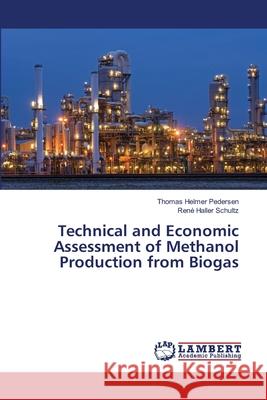Technical and Economic Assessment of Methanol Production from Biogas » książka
Technical and Economic Assessment of Methanol Production from Biogas
ISBN-13: 9783659519642 / Angielski / Miękka / 2014 / 164 str.
The importance of renewable fuel production has become significant in terms of supplying energy carriers for the transportation sector and storing electricity over ows from intermittent sources. The purpose of this book is to address, model and assess economics of methanol production schemes from a biogas origin. It is envisioned that the establishment of this biomass-to-liquid process will enhance biogas production. The enhancement is based on creating an alternative utilization method of biogas than combustion for CHP. The bene ts from the establishment are projected to be a reduction in GHG-emissions from livestock waste and a biofuel contributor to renewable liquid energy carriers. A farm and a central large scale scenario are investigated. The production scheme assessed is based on biogas from degassed bio-waste and a biogas reforming technology. A Solid Oxide Electrolysis Cell is adapted to the process schemes, partly to improve composition of reactants for methanol synthesis and to act as a peak shaving mechanism for the electricity overflows. A heat integration and economic assessment is established and subjected to a cost-optimization estimating methanol production prices."
The importance of renewable fuel production has become significant in terms of supplying energy carriers for the transportation sector and storing electricity overflows from intermittent sources. The purpose of this book is to address, model and assess economics of methanol production schemes from a biogas origin. It is envisioned that the establishment of this biomass-to-liquid process will enhance biogas production. The enhancement is based on creating an alternative utilization method of biogas than combustion for CHP. The benefits from the establishment are projected to be a reduction in GHG-emissions from livestock waste and a biofuel contributor to renewable liquid energy carriers. A farm and a central large scale scenario are investigated. The production scheme assessed is based on biogas from degassed bio-waste and a biogas reforming technology. A Solid Oxide Electrolysis Cell is adapted to the process schemes, partly to improve composition of reactants for methanol synthesis and to act as a peak shaving mechanism for the electricity overflows. A heat integration and economic assessment is established and subjected to a cost-optimization estimating methanol production prices.











